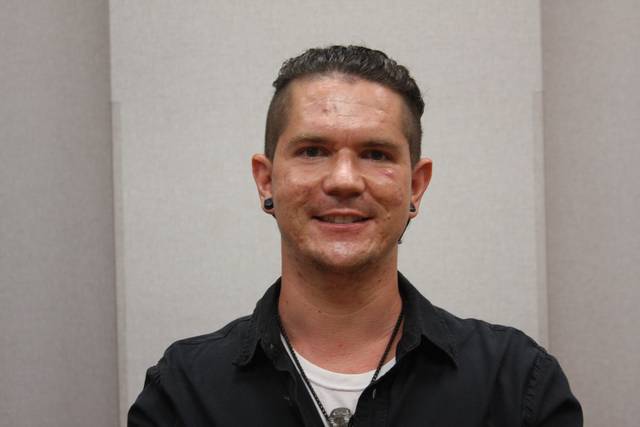Manipol-Larson faces white nationalist in GOP primary
Editor’s Note: This is the first in an intermittent series examining the primary election contests.
Editor’s Note: This is the first in an intermittent series examining the primary election contests.
It might be unusual to see more than one Republican on the primary ballot for a seat like state House District 2, which sits in heavily Democratic Hilo.
ADVERTISING
That’s not the case this year, and the choice couldn’t be more stark.
On the Aug. 11 Republican primary ballot will be Grace Manipol-Larson, who immigrated from the Philippines and is vice president of Big Island Courier Service, and Bryan Feste, a white nationalist who the party says it expelled because of his racist views.
Shirlene Ostrov, chairwoman of the Hawaii Republican Party, said the party removed Feste from its ranks after it became aware of fliers he was distributing that contain slurs against Jewish and black Americans. She said the party “values the rich diversity of our great state.”
Still, the party missed its chance to object to his candidacy and his name will appear on the ballot as a Republican.
A state Office of Elections spokeswoman said the deadline for a party to object to a nominee for either the primary or general election was June 12. Feste, who said he moved to Hawaii Island three years ago because his parents live in Hawaiian Paradise Park, filed as a Republican candidate May 2.
Manipol-Larson, 39, who is president of the Hilo Visayan Club, said in a text message that “bigotry has no place anywhere especially in Hawaii.”
In an interview, she said she wants to focus on providing rehabilitation services to reduce homelessness, start a law school at the University of Hawaii at Hilo, and create a “skywalk” in viewing distance of the lower Puna volcanic eruption to help attract tourists. She said she was studying law in the Philippines when she was married and moved to Hawaii a decade ago.
Manipol-Larson said the skywalk could be similar to a viewing platform at Niagara Falls.
“It wouldn’t be over the lava,” she said. “That’s dangerous.”
Manipol-Larson said it could be made out of glass or wood.
“It’s like making lemonade out of lemons, because we are hurting right now,” she said.
Manipol-Larson said she also supports use of mobile homes to reduce the cost of housing. She said they also could be relocated if property is threatened by lava.
Manipol-Larson previously ran for the seat as a nonpartisan candidate when it was held by Democratic Rep. Clift Tsuji, who died in November 2016. Gov. David Ige appointed Democrat Chris Todd to the seat. He faces a primary challenge from Terri Napeahi.
“I guess it’s time to open their minds,” she said, regarding needing support from Democratic voters in the deep blue district to win the general election. Manipol-Larson said she is pro-family and against abortion, views she said align with the Filipino community.
She said she supports the Thirty Meter Telescope and was split on a general election ballot initiative that seeks to tax investment properties to help fund education.
Feste, 29, doesn’t have a public campaign website and appears to have done little to campaign other than hand out fliers.
He said he is running here to “develop tactics” for like-minded candidates elsewhere, including Patrick Little, who is running as a Republican U.S. Senate candidate in California. Little also was denounced by the party for anti-Semitic remarks.
As for whether he sees himself as a serious candidate, Feste said, “I see this as part of my resume.”
His candidacy’s online presence is limited to a profile on the website onyourballot.vote411.org that also contains anti-Semitic and racist comments. He claims on the website to be a “human rights activist.”
“No shit holes in the USA. Then the world,” the profile states. “All else is error.”
According to his Facebook page, he is previously from Washington state.
House District 2 includes Keaukaha, Waiakea, Panaewa and parts of Hilo town. According to the U.S. Census Bureau’s 2016 American Community Survey, the population of the Hilo census designated place was 33 percent Asian, 17.5 percent white, 10.2 percent Native Hawaiian and 37.6 percent mixed.
Email Tom Callis at tcallis@hawaiitribune-herald.com.




